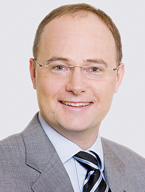EDITORIAL

Love is blind
On 16 July 1950 Brazil experienced its own version of The Miracle of Córdoba in front of 200,000 spectators in
the packed Maracanã stadium in Rio de Janeiro. The Seleção (Portugese for “team”) lost the de-facto final of the
World Cup to Uruguay 2:1. To this day this event instils Brazilians with horror.
64 years on, and the curtains are about to rise for another World Cup Final in Brazil; and let the record show:
major sporting events have dramatically changed. In 1950, the football matches were played in six stadiums,
four of which had a capacity of less than 30,000, and only 13 of the 16 qualified nations actually attended.
There was no such thing as TV broadcasting, merchandising, or official World Cup partners.
Today FIFA World Cup Finals (as well as Olympic Games) are globally celebrated mega events that impressively
illustrate how flat the world has become in the 21st century. Moreover, they are very interesting from an ESG
perspective. Stadiums that were built without buildings permits and then collapse (Brazil), fully climatised mega
stadiums in the middle of the desert (Qatar), and ski slopes that were blasted into the subtropical mountainscape
without any hesitation (Sochi) are not exactly testament to ecological considerations. Equally as problematic from
a social point of view is the (forced) resettlement to make space for new stadiums (Beijing), the accident odds of
Mount Everest ascents for construction workers in Qatar – who then might never see their wages (Sochi) –, and
the multi-billion budgets that prompt the legitimate question whether that money could not be spent more
wisely elsewhere instead of on objects of prestige without any subsequent purpose (which is practically the case
in all these instances). And who can remember the last major sporting event where accusations of corruption,
the classic governance issue, were not being levied? Perhaps corruption will soon turn into an Olympic discipline.
For that reason Erste Asset Management has taken the FIFA World Cup Final as opportunity to focus on major
events and their economic consequences from an ESG perspective. Please don’t get me wrong – the match
schedule has been studied, all other appointments have been aligned accordingly, and my new Team Brazil t-shirt
is waiting in the cupboard. I love the FIFA World Cup Final. But as we know, love is blind. And this is exactly what
the people who want to cash in at the expense of E, S, and G rely on.
Sincerely

Mag. Gerold Permoser
Chief Investment Officer (CIO)
Gerold Permoser is Chief Investment Officer (CIO) of
Erste Asset Management. In this function he is in charge
of the asset management activities and investment
strategies of all investment funds of the Erste Asset
Management Group in Austria, Croatia, Czech Republic,
Germany, Hungary, Romania, and Slovakia.